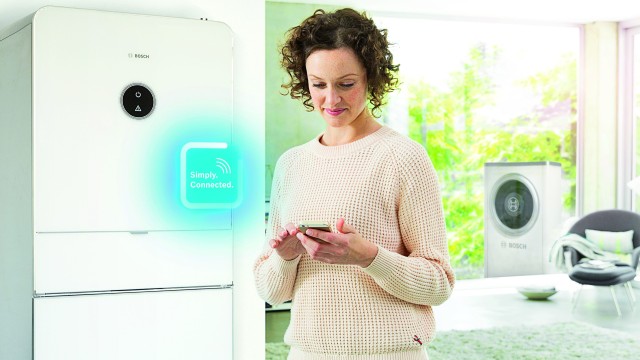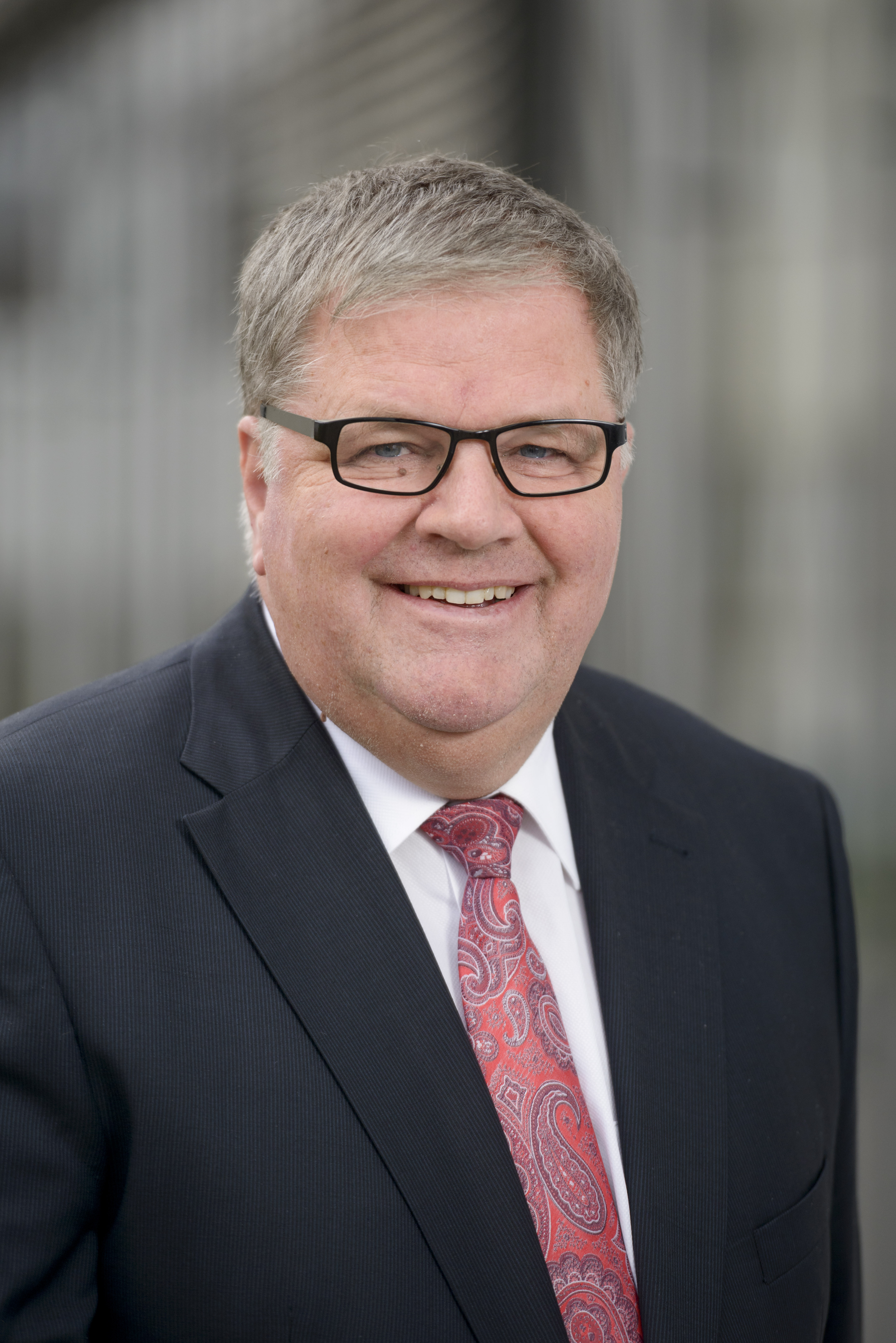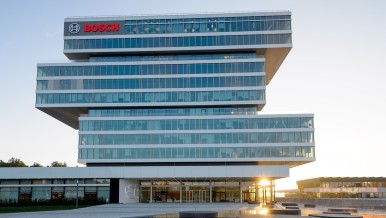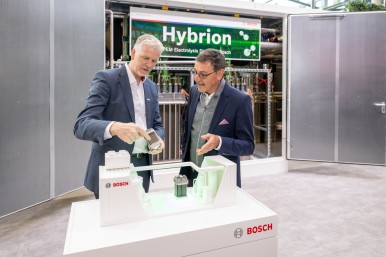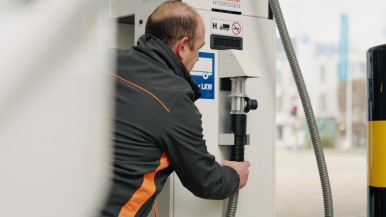In product terms, growth was driven primarily by heat pumps and wall-hung devices; in market terms, the rise in revenues is primarily the result of strong sales in Europe. Bosch Thermotechnology recorded a sharp increase in revenues primarily in Germany, the main market, and in Turkey as well as in nearly all Central and Eastern European markets. In spite of Brexit and its adverse currency effects, Bosch Thermotechnology grew strongly in the important UK market, where revenues climbed eight percent in local currency in the first half of 2018. “Our high and continuous investments in the expansion of innovative future technologies are clearly paying off. In 2017, our R&D budget amounted to EUR 172 million, which was more than twice as much as ten years ago,” said Glock. More than 415,000 connectable products sold to date make Bosch Thermotechnology the leading provider of smart heating solutions for greatly enhanced comfort, energy efficiency, operational safety and service quality. The all-new product generation launched in 2015 under the name of “DNA”, which has caused quite a stir in the industry, has been very well accepted by the market. The devices are characterised by connectability, a modular structure, easy servicing and a distinctive design. The series is meanwhile available in some 30 countries worldwide. “It has strengthened our position as the world market leader for residential buildings and set new standards for the heating technology industry,” Glock emphasised.
Well positioned for the three mega trends in times of the energy transition
Over the past ten years, Bosch Thermotechnology has evolved from a product supplier to an international supplier of complete systems in the HVAC (Heating, Ventilation, Air-Conditioning) market. “On the way to the thermotechnology of the future, Bosch Thermotechnology will continue to rely on the three business segments ‘heating systems and energy management for residential buildings’, ‘domestic hot water heating’ and ‘commercial and industrial heating and airconditioning systems’. “In the times of the energy transition, it is our objective to become a digital climate and energy company including service operations and we aim for revenue growth of at least five percent per year,” Uwe Glock said to explain the ambitious objectives the company has set itself for the future. In the long term, the three megatrend “Ds” of the heating technology industry – decarbonisation, digitisation and decentralisation (increased local electricity generation) – will be the biggest challenges to make Bosch Thermotechnology fit and sound for the future. “It is therefore important to understand that now is the time to push ahead with the expansion of electric systems such as heat pumps in combination with controlled room ventilation or electric hot water solutions. Other items that rank high on our agenda for the coming years include complete system solutions for new residential buildings, the project business in the commercial and industrial segment and the entry into new business areas such as air purification”, said Uwe Glock. Already today, Bosch Thermotechnology has a large number of products in its portfolio which innovatively implement the three mega trends mentioned above for heating contractors and customers.
Stationary battery storage systems make electricity supply more flexible
The market for stationary high-performance battery storage systems continues to grow dynamically as efficient battery systems stabilise renewable energy sources and compensate for the time lag between power generation and power demand. Bosch Thermotechnology offers electricity storage systems in output ranges for smaller industrial businesses up to power plants. The Bosch battery storage systems feature a sophisticated cooling system which causes low operating costs and prevents premature ageing of the batteries. An example of such a large storage system can be found on the Bosch Thermotechnology site in Wernau. The 12-metre-long container is equipped with 432 battery modules which can supply forty households of four with an annual power consumption of 3,500 kWh each with electricity for one week. The system is connected to the public power grid and is charged and discharged in line with supply and demand in the electricity market. “We are convinced that our battery storage systems will become economically viable, as they are more efficient and faster than other solutions,” said Uwe Glock.
Smart connection with the decentralised energy manager from Bosch
Presented at the SHK trade fair in Essen in March, the new energy manager from Bosch assists smart-home residents in becoming energy-independent. More and more homeowners choose a solution comprising a heat pump and a photovoltaic system. The energy manager software intelligently combines the two units, thus facilitating the use of internally generated energy and efficient heat generation. The energy manager is integrated into the Bosch Smart Home – the app allows users to keep all data under control and to easily integrate their household appliances. Smart-home residents stand to save up to 80 percent of their electricity costs thanks to efficient digital control and renewable solar energy in combination with a battery storage system.
Digital service tools assist heating contractors
“Digital solutions are the key to success when it comes to shaping the future of the heating industry. In the foreseeable future, we will generate a large part of our revenues with connected solutions. We aim to be a strong partner to heating contractors to support them on their way into the connected world, so that they can focus on their core business and offer end customers the best possible service,” said Uwe Glock. In April 2018, the company launched a new digital solution in the form of the EasyContact app, which allows heating contractors to directly contact the Bosch Thermotechnology experts via phone. After only three clicks, they will quickly and easily be put through to the desired department. More functions will be added in the course of the year. It will be possible for the heating contractor, for instance, to use the app to send error reports directly to Customer Service, so that the technical consultant can come up with a solution even more quickly than before. EasyContact is integrated into the digital EasyService Toolbox, which means that all digital tools relating to the servicing and commissioning of the heating systems are combined in a single app. The benefits: better control, less time input, greater customer satisfaction.

